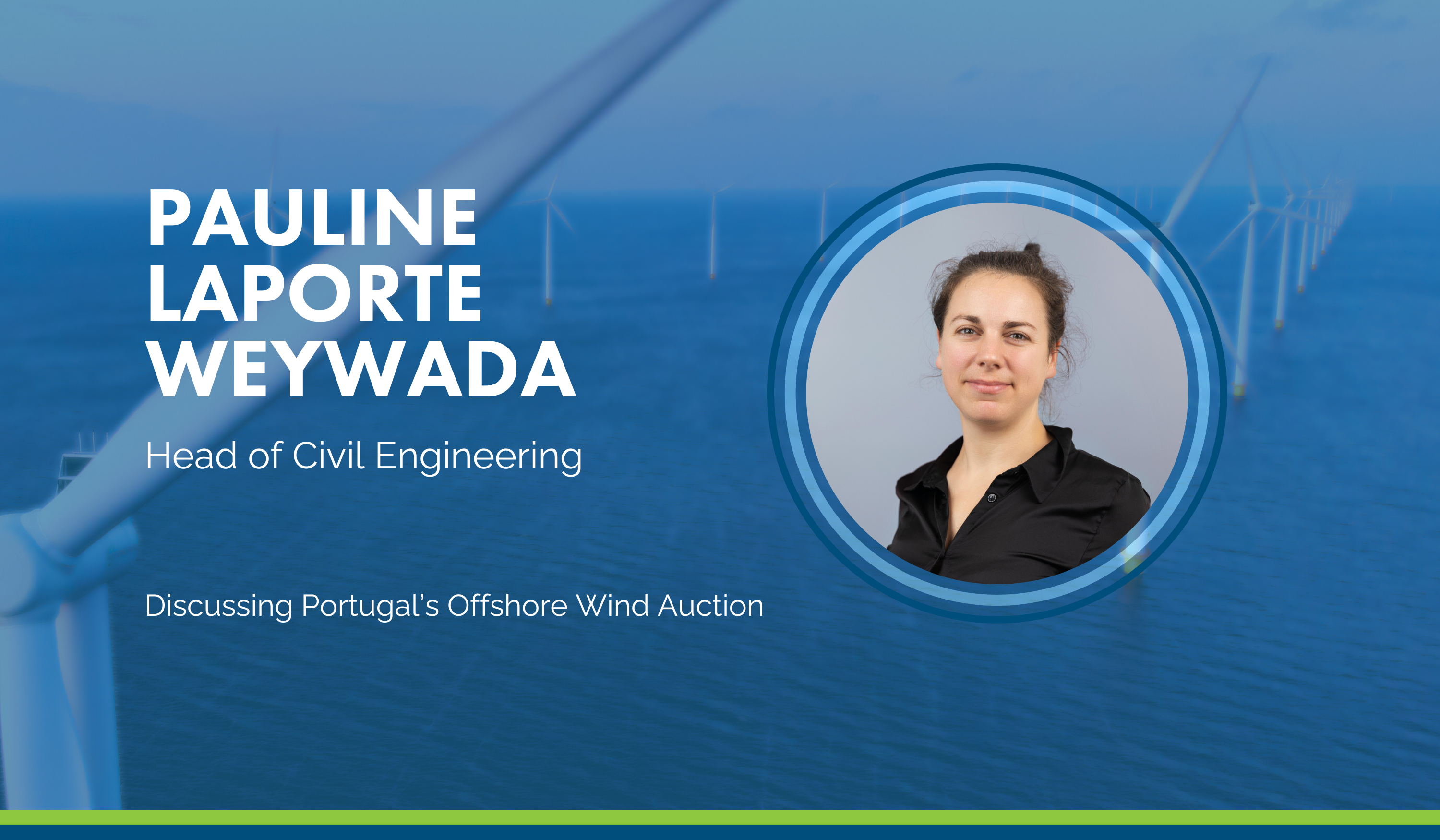
Key Insights: Portugal's Offshore Wind Auction
Our colleague, Pauline Laporte Weywada, Head of Civil Engineering, had the opportunity to attend the Oceanic Renewables Summit organized by APREN - Associação Portuguesa de Energias Renováveis, where industry leaders gathered to explore the current landscape of offshore wind markets in Portugal and Spain. The discussions were incredibly informative, covering a myriad of critical topics, including an update on Portugal's upcoming offshore wind auction.
Pauline heard invaluable insights during presentations from DGEG - Direção Geral de Energia e Geologia and DGRM Direção-Geral, and during the subsequent round table where a few key developers (BlueFloat Energy, Equinor, OW Ocean Winds, Reventus Power, RWE) joined to shed light on the progress made thus far and the road ahead. Here are her key takeaways:
What is the ideal auction model for Portugal?
From the creation of a working group to the expression of interest from 49 entities, it is evident that there is immense interest and momentum in Portugal's offshore wind sector. The recent political turmoil has slowed down the process, and it is critical now that the new government brings up again the topic and resumes the progress – the recent order for the preparation of a 2024-2033 Development and Investment Plan for the Electricity Transmission Network (PDIRT-E) for the period 2024-2033 is an excellent sign that things are moving forward.
One of the crucial decisions yet to be finalised is the competition model for the auction. As both unified centralised and sequential centralised models (see below picture from the presentation from DGEG) have their merits, and have been used elsewhere, discussions are ongoing to determine the most suitable approach. The general preference seems to be leaning towards the sequential model (allocation of TUPEM first and then TRC/CfD), overall seen as advantageous for sequencing the maturation and de-risking of the project before reaching the CfD stage.

Pre-qualification criteria: a balancing act
The session also touched upon the pre-qualification criteria for promoters, that are now under discussion, emphasising the need for fairness and competitiveness in the selection process. In the definition of the criteria and their thresholds, it is essential to strike a balance between assessing technical and financial robustness (identifying early on those that are unlikely to be able to proceed with a reasonable project) while ensuring inclusivity and fostering a competitive environment (be lenient to ensure that sufficient interested parties can compete).
Mitigating impacts on biodiversity and use of space
Addressing concerns about the multiple uses of space generated by offshore wind projects was seen as paramount. Public consultations have highlighted the need to prioritise environmental considerations and propose mitigation measures to mitigate potential impacts. DGRM underscored the necessity for seabed lease fees to accurately reflect the conflict of use created, while acknowledging the developers’ call for a judicious limitation or postponement of cash payments, to mitigate early financial burdens during the project's initial stages.
Securing stability
Participants emphasised the pivotal role of long-term tenure agreements and CfDs in streamlining project planning and financing. They stressed the importance of implementing sophisticated inflation indexation mechanisms, ensuring financial stability not only until FID, but also throughout the project's operational lifecycle. Lastly, the significance of achieving economies of scale was reiterated, deemed essential for driving down costs and fostering the development of a robust supply chain ecosystem – which (and that was the closing topic of the day) should find a balance between the existing global and the opportunity to reinforce the local one.
The tone was set with Pedro Amaral Jorge's opening notes highlighting the holistic nature of offshore wind: It is not merely about generating electricity; it is about nurturing an entire ecosystem of benefits that can uplift regions and nations – a promising opening for a day full of insightful conversations! As we now look ahead to the next steps in Portugal's offshore wind journey, one thing is clear: transparency, clarity, and continuous stakeholder engagement will be crucial in driving success.





